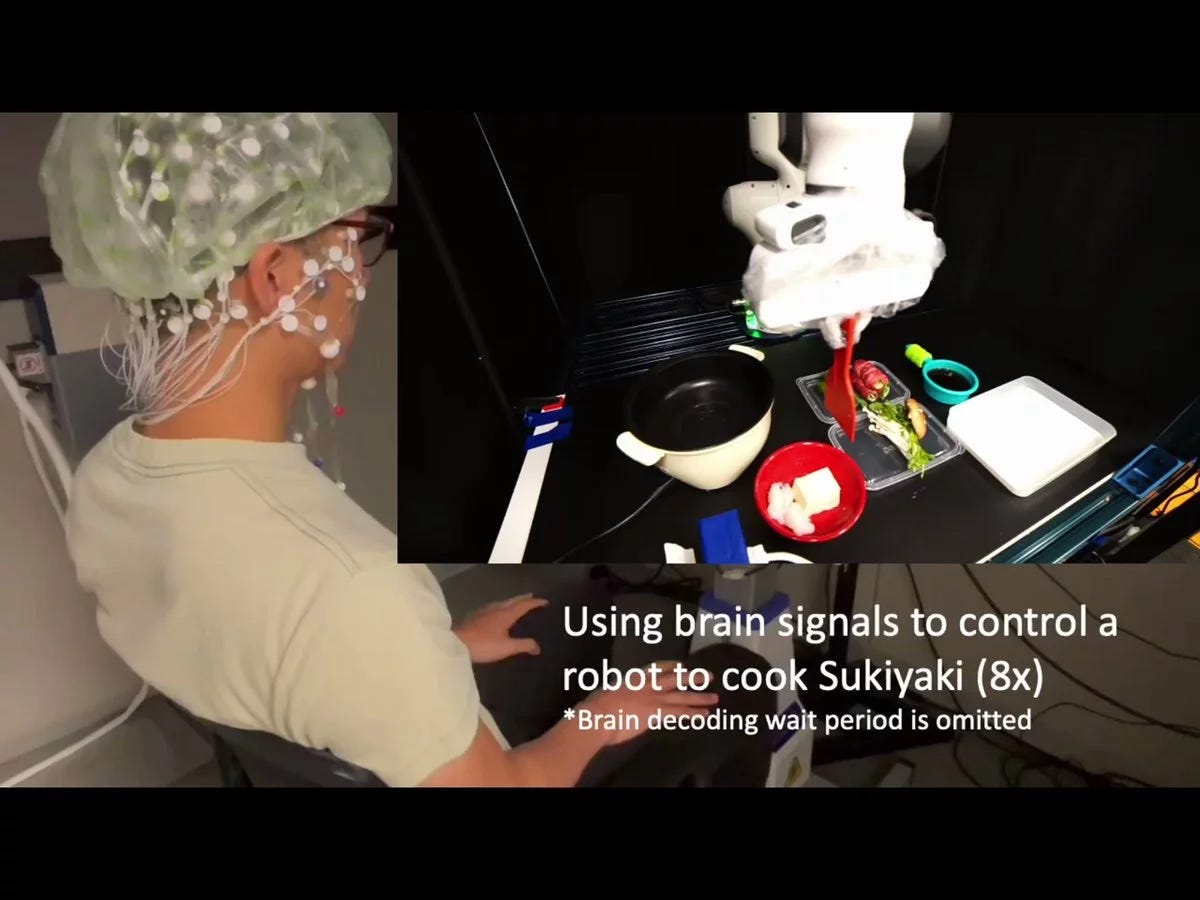NOIR: Brain-Powered Robots for Daily Tasks

NOIR: Brain-Powered Robots for Daily Tasks
NOIR is an intelligent brain-computer interface system developed by Stanford University that allows humans to communicate their objects of interest and action intentions to robots through brain waves (EEG), enabling robots to perform daily activities.
The system has demonstrated success in 20 daily household activities, including cooking, cleaning, personal care and entertainment.
The NOIR system consists of two parts: one is a system that interprets human brain signals, and the other is a robotic system with a basic skill library.
The research used non-invasive electroencephalography (EEG) to capture brain signals and parse these signals through specific algorithms, allowing the robot to understand and execute human instructions.
In the experiment, 3 participants (2 men and 1 woman) used NOIR to complete 20 long-term tasks (each task contained 4–15 skills). These tasks included 8 meal preparation tasks, 6 cleaning tasks, 3 Personal care tasks and 3 entertainment tasks. On average, each task required 1.8 attempts to succeed, and task completion time averaged 20.3 minutes.
The research significance of the NOIR project is that it not only demonstrates the application potential of brain-computer interface technology in the home environment, but also improves the efficiency and accuracy of task execution through the application of machine learning algorithms. This technology may have a significant impact on the ability of disabled people to take care of themselves in the future and improve their quality of life.
Projects and demos
Paper
More AI News
